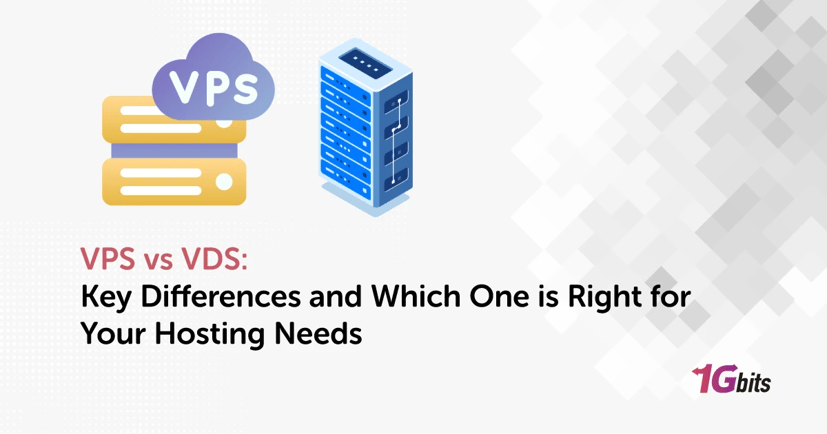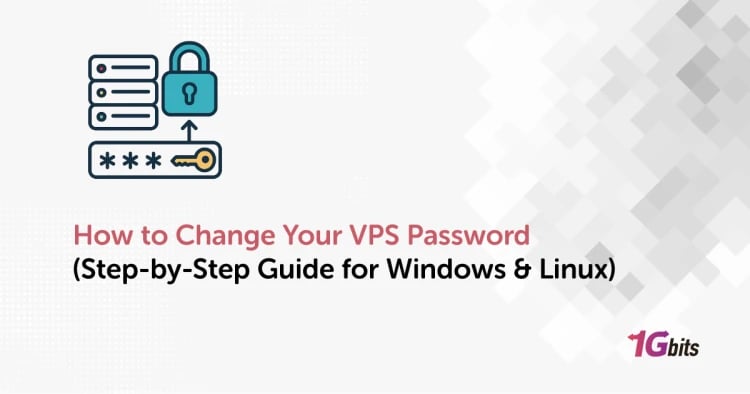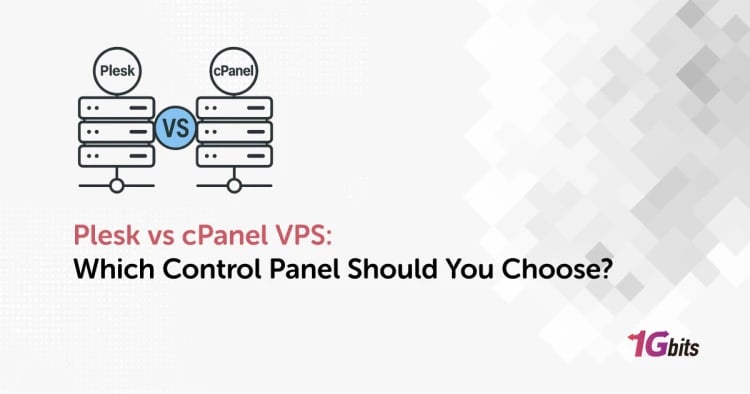When choosing between VPS vs VDS, understanding their differences is crucial for finding the right hosting solution. VPS vs VDS both offer virtualized environments, but the core VPS vs VDS difference lies in resource allocation and performance. In a VPS setup, resources are shared among users, making it a cost-effective choice for small to medium projects. On the other hand, VDS provides dedicated resources, ensuring higher performance for demanding applications. For those considering Contabo VPS vs VDS, evaluating specific needs is essential, as VPS vs VDS affects scalability, security, and control. Knowing the VPS VDS difference can guide you to the best fit for your requirements. Whether you're debating VDS vs VPS for flexibility or performance, a clear understanding of VPS vs VDS will help you make an informed decision.
What is Vps?
A Virtual Private Server (VPS) is a hosting solution that offers users an isolated, customizable server environment without requiring the resources of a full, dedicated server. A VPS runs on a larger physical server, which is divided into several smaller, virtual servers. Each VPS has its own operating system, allocated resources (such as CPU, RAM, and storage), and private environment, providing users with flexibility and control. VPS hosting sits between shared hosting, where resources are pooled, and dedicated servers, which offer an entire physical server to a single user. This makes VPS a great middle-ground solution for those who want the power of a dedicated server but at a lower cost. For more Detail s about VPS Definition, read What Is VPS Hosting, and If You know VPS Uses, read VPS Uses and Use Cases[H1] .
Benefits of Vps
A Virtual Private Server (VPS) is a powerful and versatile hosting solution that offers several benefits over shared hosting, such as better performance, security, and customization. VPS hosting creates an isolated environment on a shared physical server, where each user gets dedicated resources like CPU, RAM, and storage. This setup makes VPS an excellent choice for websites and applications that have outgrown shared hosting but don’t require the full resources of a dedicated server. When comparing VPS vs VDS, it’s crucial to understand the unique benefits VPS provides in relation to VDS and dedicated servers. For Buy VPs, visit Buy VPS Hosting.
Performance and Reliability
VPS hosting provides significantly improved performance over shared hosting. In a VPS environment, each user’s resources are allocated and isolated, which means your website won’t be affected by others sharing the server. While a VPS shares physical resources with other VPS users, the virtualization process ensures a certain level of resource dedication, offering better speed and reliability.
Customization and Control
With VPS hosting, you have full control over your environment. This includes root access, allowing you to install applications and customize the server’s operating system based on your needs. In the VPS vs VDS comparison, both VPS and VDS offer high levels of control, but the VDS server generally allows for deeper control over resource allocation because it allocates a fixed amount of physical resources.
Scalability
A VPS allows for easier scalability as your website or application grows. You can increase CPU, RAM, or storage resources with little downtime, which is ideal for businesses expecting growth. In the VPS vs VDS discussion, both VPS and VDS provide scalable solutions, but VDS is typically preferred when a higher and more consistent level of resources is needed, as in high-traffic applications.
Cost-Effectiveness
VPS is a cost-effective solution that balances performance with affordability. Although it costs more than shared hosting, it is considerably less expensive than a dedicated server. When comparing VPS vs VDS vs dedicated server, a VPS generally offers the best value for businesses that need dedicated resources without the high cost associated with dedicated hosting.
Enhanced Security
VPS hosting provides an added layer of security by isolating each user’s environment, which minimizes the risk of cross-contamination from other users. In the VPS vs VDS comparison, both VPS and VDS servers offer improved security over shared hosting, but the isolated nature of VDS provides even greater protection. For businesses handling sensitive information, VDS/VPS solutions provide a robust foundation for secure web applications.
When examining VPS vs VDS vs dedicated server options, it’s essential to understand the VPS vs VDS difference. While VPS offers shared resources with isolation, a VDS server provides dedicated physical resources without the overhead cost of a dedicated server. This makes VDS an attractive option for high-demand applications that need consistent performance. Dedicated servers, on the other hand, give an entire server to one user, providing maximum resources, customization, and control but at a much higher cost.
In conclusion, VPS hosting provides an excellent balance of affordability, flexibility, and performance, making it ideal for growing websites or applications. For businesses needing more dedicated resources, a VDS server may be preferable. Understanding the VPS vs VDS difference can help you choose the right solution based on your specific requirements and budget.
What is Vds?
A Virtual Dedicated Server (VDS) is a hosting solution that offers dedicated resources within a virtualized environment. Unlike shared hosting, where resources are pooled among many users, a VDS gives each user exclusive access to specific amounts of CPU, RAM, and storage. This means that in a VDS environment, you are not sharing these resources with others on the same physical server, leading to better performance and reliability. VDS meaning refers to a virtual server with resources that are truly isolated from other users, unlike a VPS where some resources are shared. For Buy VDS, visit VDS Hosting.
Benefit of Vds
A Virtual Dedicated Server (VDS) is a type of hosting that provides users with dedicated resources within a virtualized environment. This setup offers many of the benefits of a dedicated server at a more accessible price. Unlike shared hosting, a VDS provides greater performance, control, and customization, making it a popular choice for businesses and developers with high-demand applications. When evaluating VPS vs VDS, understanding the unique advantages of VDS can help you decide if it’s the best option for your needs. This section-by-section guide will explore the key benefits of VDS hosting and explain how it compares to VPS.
1. Performance and Reliability
One of the most significant benefits of a VDS is its superior performance and reliability. With a VDS, users receive dedicated resources, including a fixed amount of CPU, RAM, and storage, which are not shared with other users. This dedicated allocation ensures that a VDS server can handle more traffic, high-demand applications, and resource-intensive tasks without performance fluctuations.
In the VPS vs VDS comparison, VPS resources are shared across multiple users on a physical server, leading to possible resource contention during peak times. In contrast, a VDS is isolated and unaffected by other users, providing a more consistent experience. For businesses running critical applications or websites, the reliability and high performance of a VDS can be a major advantage.
2. Scalability and Flexibility
A VDS offers excellent scalability, allowing users to adjust their resources as their needs grow. If your website or application experiences increased traffic or requires additional processing power, you can upgrade your VDS resources without changing to a new server or enduring downtime. This flexibility is particularly useful for businesses that anticipate growth or have fluctuating resource needs.
While VPS hosting also allows scalability, the VPS vs VDS difference in scalability is that VDS upgrades are generally more seamless and provide truly dedicated resources, making it easier to maintain consistent performance during scaling.
3. Enhanced Security
Security is a crucial factor in choosing hosting, especially for businesses handling sensitive data or regulated information. VDS hosting offers improved security over VPS and shared hosting, as each VDS server is completely isolated from others on the physical server. This separation reduces the risk of cross-contamination from other users and prevents security breaches that can arise from shared resources.
In the VPS vs VDS debate, both options offer security improvements over shared hosting, but a VDS provides a higher level of isolation and privacy, making it ideal for businesses with stringent security requirements. For companies subject to data protection regulations, VDS hosting offers a robust, compliant hosting solution.
4. Full Control and Customization
With VDS, users have full administrative control over their server environment, allowing them to customize the operating system, software, and configurations to suit their needs. This level of control is comparable to dedicated servers and enables businesses to create a highly tailored hosting environment.
In a VPS vs VDS comparison, VPS also allows a certain level of control, but because resources are shared, users may face restrictions in configuring their VPS server fully. A VDS, on the other hand, offers a completely isolated environment, which is highly customizable, making it an attractive choice for businesses with specific technical needs or custom software requirements.
5. Cost-Effectiveness Compared to Dedicated Servers
While dedicated servers offer maximum control and performance, they are often costly and may exceed the needs of many small to medium-sized businesses. A VDS provides a cost-effective alternative by offering many of the same benefits as a dedicated server at a fraction of the price.
When evaluating VPS vs VDS vs dedicated server, VDS stands out as a middle ground. It delivers dedicated resources like a dedicated server but at a lower cost, making it a practical option for businesses seeking a powerful solution within budget constraints.
6. High Uptime and Stability
For businesses and applications where uptime is critical, VDS hosting offers high stability and uptime. Because resources are dedicated, your server’s performance is less likely to be affected by other users, ensuring a stable and reliable hosting experience. This high uptime can be crucial for e-commerce sites, financial applications, or any service where downtime could lead to significant losses.
In a VPS vs VDS comparison, VPS servers can sometimes experience downtime or performance dips due to shared resource demand. By contrast, VDS hosting is less susceptible to these issues, providing enhanced stability and a more reliable hosting environment.
7. Ideal for High-Demand Applications
A VDS server is particularly well-suited for high-demand applications that require stable, dedicated resources. Whether it’s a high-traffic website, a database-driven application, or software that requires significant processing power, a VDS can deliver the consistent performance needed for these demanding scenarios.
When comparing VPS vs VDS, VPS may not always meet the needs of resource-intensive applications due to the shared nature of its resources. A VDS, with its isolated resources, is ideal for situations where performance cannot be compromised.
8. Better Resource Allocation Transparency
One often-overlooked benefit of VDS hosting is the transparency of resource allocation. Since each VDS has dedicated resources, users can see exactly how much CPU, RAM, and storage they have at any given time. This makes it easier to manage workloads, monitor performance, and plan for upgrades.
In the VPS vs VDS difference, resource transparency is a significant advantage for VDS users. With VPS, performance may vary if other users are consuming more resources, making it difficult to manage resources predictably.
By understanding the VPS vs VDS difference, businesses can make an informed decision about the best hosting option for their unique requirements, ensuring they get the right balance of power, security, and affordability.
Similarities between Vps and Vds
When choosing between a Virtual Private Server (VPS) and a Virtual Dedicated Server (VDS), it’s essential to understand not only their differences but also the similarities. Both VPS and VDS provide virtualized hosting environments, making them ideal for websites or applications requiring more control and resources than shared hosting can offer. While the VPS vs VDS comparison often focuses on what sets them apart, there are several key areas where they overlap. This guide will explore the similarities between VPS and VDS hosting in detail.
1. Virtualization Technology
Both VPS and VDS hosting rely on virtualization technology, which divides a single physical server into multiple virtual environments. Virtualization allows each virtual server to operate independently, with its own operating system, applications, and resources. In the VPS vs VDS debate, both types benefit from the advantages of virtualization, such as improved resource utilization, isolated environments, and cost-efficiency. The main difference is the level of resource allocation, but the underlying technology enabling their operation is quite similar.
For users, this means that whether you choose VPS or VDS, you’ll gain the benefits of virtualization, including a flexible and scalable solution. Both VPS and VDS users have access to a private virtual environment that functions independently of other users on the same physical server.
2. Isolation and Privacy
Another important similarity in VPS vs VDS hosting is isolation. Both VPS and VDS solutions provide isolated environments, meaning each user’s data, applications, and resources are separated from others on the same physical server. This isolation ensures that activities on one virtual server do not affect others, making both options more secure and private than shared hosting.
For businesses handling sensitive data or requiring regulatory compliance, both VPS and VDS can provide a secure environment. The key distinction here is in resource allocation rather than isolation; both VPS and VDS keep user environments separate, enhancing security and reducing the risk of data leaks or performance interference from neighboring users.
3. Control and Customization
One of the appealing aspects of both VPS and VDS hosting is the high degree of control and customization they offer. With both options, users have root access to their virtual servers, enabling them to install custom software, configure the operating system, and adjust settings as needed. This level of control makes both VPS and VDS attractive for developers, businesses with specific software needs, or those who want to run custom applications.
In a VPS vs VDS setup, both options allow for extensive customization that is not possible with shared hosting. Whether you choose VPS or VDS, you can configure the environment to meet your exact specifications, making them both suitable for a range of advanced applications.
4. Dedicated IP Address
Both VPS and VDS servers come with a dedicated IP address. This means that your virtual server is assigned a unique IP that is not shared with other users. A dedicated IP is essential for applications requiring a secure connection, such as e-commerce websites with SSL certificates, or any business wanting to improve its email deliverability and SEO.
In the VPS vs VDS comparison, having a dedicated IP is a shared feature that provides a professional, secure option for businesses. With a dedicated IP, your server’s reputation isn’t influenced by other users’ activities, as can happen in shared hosting.
5. Scalability for Growing Needs
Both VPS and VDS hosting offer scalability, allowing users to increase resources as their needs grow. Whether it’s more CPU, RAM, or storage, you can upgrade your server without switching providers or facing significant downtime. This scalability is an advantage in VPS vs VDS, making both options adaptable as your website or application traffic increases.
While a VDS might provide slightly easier scalability due to its fixed resource allocation, both VPS and VDS allow for seamless upgrades to accommodate growth, ensuring they remain reliable options for growing businesses or expanding projects.
6. Cost-Effective Alternatives to Dedicated Servers
Both VPS and VDS offer cost-effective solutions compared to dedicated servers. For users who need more control and resources but don’t want to invest in a full dedicated server, both VPS and VDS are affordable alternatives. They both provide enhanced performance and security over shared hosting without the high cost associated with dedicated servers.
In the VPS vs VDS cost comparison, VPS hosting is generally more affordable because of shared resources, while VDS is priced slightly higher due to its dedicated resource allocation. However, both options still remain budget-friendly compared to dedicated servers, offering a balance of performance and price that appeals to many businesses.
7. Enhanced Security Compared to Shared Hosting
Security is a priority for both VPS and VDS hosting. While the VPS vs VDS difference in security is often highlighted, both offer a secure environment that is a significant step up from shared hosting. Since both VPS and VDS provide isolated environments, they reduce the risk of data breaches or malware spread from neighboring accounts, which is common in shared hosting environments.
Both VPS and VDS are ideal for businesses that require enhanced security but don’t need the absolute security of a dedicated server. While VDS may offer more robust protection due to dedicated resources, both VPS and VDS provide a reliable solution for hosting sensitive applications or data.
8. Technical Support and Managed Options
Most hosting providers offer both VPS and VDS as managed services, meaning they provide technical support, monitoring, and maintenance for users who may not want to manage their server entirely on their own. In the VPS vs VDS comparison, both managed VPS and managed VDS options provide professional support, making these services accessible to users who may lack technical expertise.
This managed option is a valuable similarity, as it allows businesses to focus on their core operations without worrying about server management. With both VPS and VDS, managed services enable users to take advantage of virtual hosting without needing advanced technical skills.
Vps vs Vds: Key Diffrences
Resource Allocation and Performance
The most significant difference between VPS and VDS is the way resources are allocated. In a VPS environment, resources like CPU, RAM, and storage are shared with other users on the same physical server. This means that performance can fluctuate depending on the resource usage of other VPS users. While VPS hosting provides a certain level of isolation, it doesn’t guarantee that resources won’t be affected by other virtual environments on the same server. If you want read comparison between Dedicated Server and VPS Hosting, read Dedicated Server Vs VPS Hosting.
On the other hand, a VDS guarantees dedicated resources that are not shared with anyone else. This ensures more stable performance and makes VDS a better choice for websites or applications that require consistent processing power, such as high-traffic websites, e-commerce platforms, or data-intensive applications. In the VPS vs VDS debate, the dedicated resources of VDS provide an edge for resource-heavy tasks.
4. Control and Customization
Both VPS and VDS offer root access, meaning you have full control over the server environment. This allows you to install custom software, configure settings, and manage the operating system as needed. For developers and businesses with specific requirements, the level of control offered by both VPS and VDS is one of their primary advantages over shared hosting.
The VPS vs VDS difference in control comes down to the degree of customization. With a VDS, you’re guaranteed exclusive access to dedicated resources, allowing you to tweak configurations more freely without worrying about resource conflicts with other users. While VPS offers significant customization, it can sometimes be limited by the sharing of physical resources, which may not allow for the same level of customization or performance tuning that a VDS offers.
5. Scalability and Flexibility
Both VPS and VDS hosting are scalable, meaning you can upgrade your resources (such as RAM, CPU, and storage) as your website or application grows. This makes both options suitable for businesses or projects that expect to scale over time.
In a VPS vs VDS comparison, VDS generally offers more seamless scalability due to its fixed, dedicated resource allocation. While VPS can also be upgraded, the shared nature of resources may sometimes create limitations in how quickly or effectively you can scale without affecting performance. VDS hosting provides greater flexibility for businesses that need to handle traffic spikes or require substantial resource increases as they expand.
6. Cost Considerations
VPS hosting is typically more affordable than VDS hosting. Since VPS resources are shared among multiple users, hosting providers can offer it at a lower price point. This makes VPS a great option for businesses with moderate resource needs or for developers and startups working on a budget.
On the other hand, VDS is more expensive because it offers dedicated resources, providing better performance, isolation, and security. While the cost difference in VPS vs VDS can be substantial, VDS is often worth the investment for larger businesses, high-traffic websites, or applications that require more resources and reliability.
7. Security Features
Both VPS and VDS offer enhanced security compared to shared hosting. With both options, users get an isolated environment, which reduces the risk of a security breach from other users on the server. However, the level of security differs between the two options.
In a VPS environment, the resources are shared, which means that security can be affected by other users' activities. While VPS generally provides a secure hosting environment, some security risks may arise from shared resources. On the other hand, a VDS provides a higher level of security because resources are fully dedicated to you, offering better isolation and minimizing the risk of interference from other users. For businesses with strict security requirements, a VDS may be a more suitable choice. The VPS vs VDS difference here is clear: VDS offers a higher level of security due to its dedicated resources.
8. Ideal Use Cases
Both VPS and VDS can be used for a variety of applications, but the ideal use case for each depends on your specific needs. VPS hosting is ideal for small to medium-sized businesses, websites with moderate traffic, or development environments that require dedicated resources without breaking the bank. VPS is also suitable for personal projects or hobby websites that don’t require maximum performance.
In contrast, VDS is better suited for businesses or applications that demand more resources and consistent performance. High-traffic websites, e-commerce platforms, and applications that rely on heavy processing power will benefit from the dedicated resources of a VDS. In the VPS vs VDS comparison, VDS is the better choice for high-demand environments.
Conclusion
In conclusion, the choice between VPS and VDS largely depends on your specific hosting needs, budget, and performance requirements. While both offer enhanced control, security, and resource isolation compared to shared hosting, VPS is a more cost-effective solution with shared resources, making it suitable for smaller websites or businesses with moderate traffic. In contrast, VDS provides dedicated resources, ensuring more consistent performance, better security, and scalability, making it ideal for high-traffic websites or resource-intensive applications. The VPS vs VDS comparison highlights key differences in resource allocation, performance, and cost. Ultimately, if you require more control and guaranteed performance without the higher costs of dedicated hosting, a VDS might be the better choice. On the other hand, if you're looking for a budget-friendly option with sufficient control and flexibility, VPS hosting will likely meet your needs. Understanding these differences will help you select the best solution for your project.













